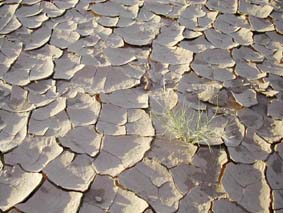The perennial question that successful authors receive at any session they conduct for aspiring writers is: “How do you deal with writer’s block?” The question assumes that they do occasionally experience the phenomenon.
I contend it does not exist. If it does, it is a figment of the imagination. If it does, there are multiple ways to make it not exist at all. There are means to make it ephemeral at best.
If I wake up and after my morning rituals proceed to my desk to begin my routine of writing (the first task on my daily agenda) to realize the well of ideas has run dry, I go for a walk. I carefully observe every item along the way, cracks in the pavement, birds in the sky, junk cars in the driveway, and the oak tree with the tire swing; up, down, and around I observe. I note the drift of the clouds, the jet overhead—bound for where? Who is aboard? The imagination takes flight as it surely should for the writer’s observant eye and mind. I smell the vegetation, the resin oozing from the pine. I touch the blade of grass and bite, tasting its white end. All senses are engaged, the mind intent on the why and wherefore behind the tennis shoe left on the shoulder of the road. The back story emerges.
Settled in my comfortable chair again, I write, describing everything I saw, heard, touched, smelled, and thought on my walk. The details pour out, because so much happened on that walk in the woods, around the neighborhood block, or down that country road. So much happened too that I didn’t see that happened before I arrived on the scene. The past and the future inhabit the shuttered clapboard house I passed.
Next I enter the haunted chamber of memory. I visit the house in which I grew up and search each room, gaze upon each shelf, and fondle my favorite stuffed animal for a moment. In my mother’s china cabinet is an heirloom teapot. I select that object to contemplate longer and then begin to write all that it evokes, everything it means to me, how it touched our family. Maybe I broke the cherished end table lamp and my father glued it together. You can choose anything from your childhood home and construct an elaborate story around it.
Or turn on the news. Write your reaction to the earthquake in Indonesia, famine in the Sudan, or the last school shooting. Write why you hate listening to the news or why you dislike television and why you prefer a good science fiction movie. Write what your life would have been like if you had married your high school sweetheart or the horror it really was because you married the man from Mars.
Responding to prompts is another way to flex your writing muscles. Many books and websites on the craft provide writing prompts. I developed this method in an adult education course I called “Writing Aerobics,” which I taught at a community college. I give the students a seed of an idea—the prompt—for a piece of writing. For instance, I tell them to think of their mother’s favorite bromide such as “If you can’t say anything nice, don’t say anything at all” and write a story or poem around it. I throw out an image such as “the hobbyhorse in the attic” or “the wedding cake on the sidewalk” to use as a jump-start for their imagination. Playing a piece of instrumental music also provides a good writing exercise. I ask the students to write down everything that comes into their mind and every concrete image the music evokes. New Age, synthetic, or classical are the best kinds of music for this exercise. I use selections from the Narada collection and David Arkenstone., and South American group Inti Illimani group. The strangeness of the music helps to release imagination.
If all else fails, just start writing anything and everything that pops into your mind—bad, inconsequential, absurd. I guarantee something will catch fire and you will run with your hair all aflame to carry that idea to its magnificent conclusion in an essay, story, or poem. But it doesn’t have to be the Great American Novel. Just keep dreaming; keep imagining.
Explore my books at mountainofdreamsbooks.com


